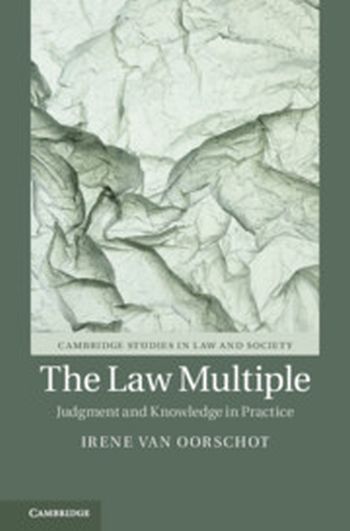
In the field of socio-legal studies or law and society scholarship, it is rare to find empirically rich and conceptually sophisticated understandings of actual legal practice. This book, in contrast, connects the conceptual and the empirical, the abstract and the concrete, and in doing so shows the law to be an irreducibly social, material and temporal practice. Drawing on cutting-edge work in the social study of knowledge, it grapples with conceptual and methodological questions central to the field: how and where judgment empirically takes place; how and where facts are made; and how researchers might study these local and concrete ways of judging and knowing. Drawing on an ethnographic study of how narratives and documents, particularly case files, operate within legal practices, this book's unique and innovative approach consists of rearticulating the traditional boundaries separating judgment from knowledge, urging us to rethink the way truths are made within law.